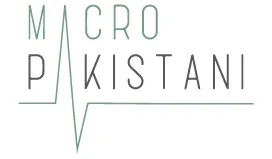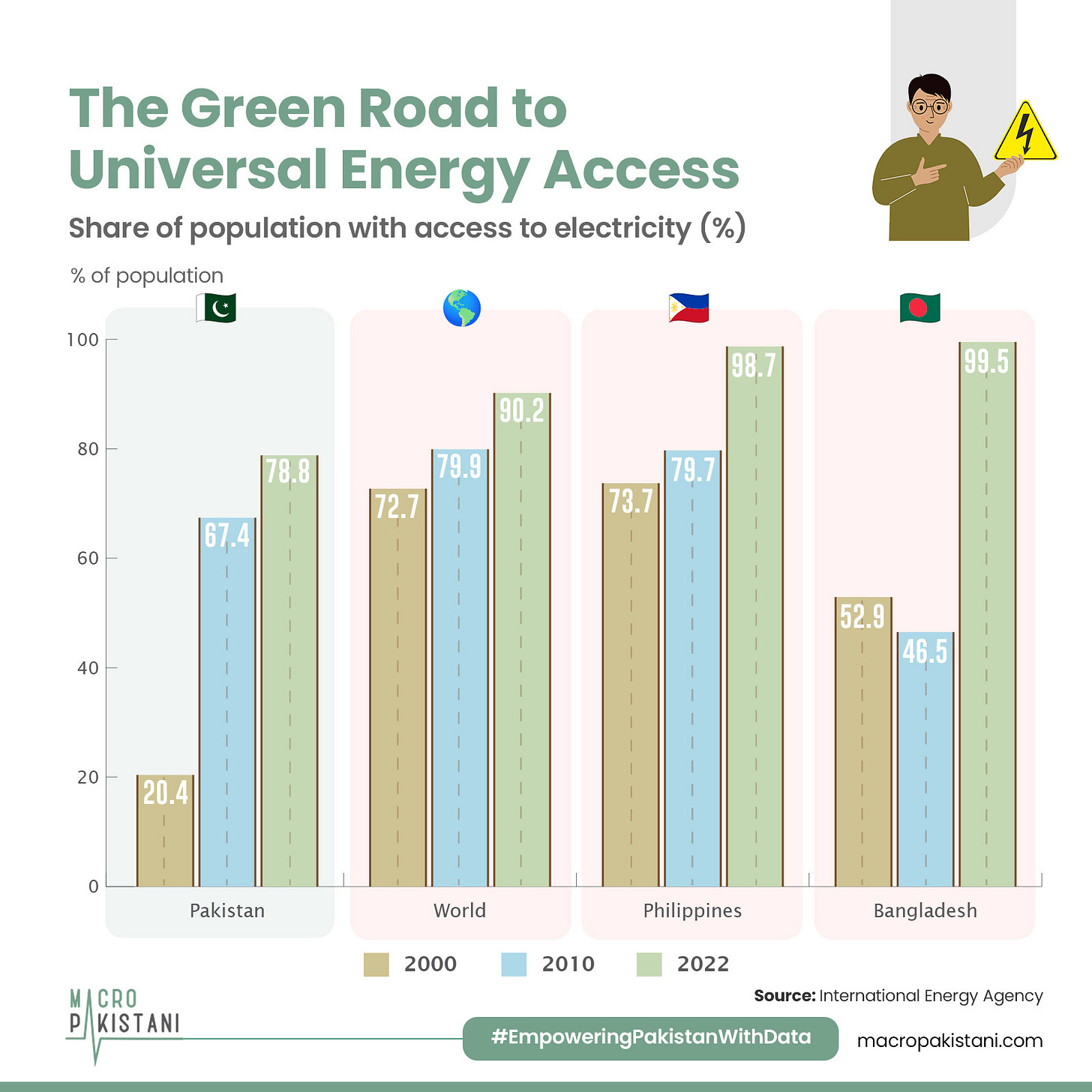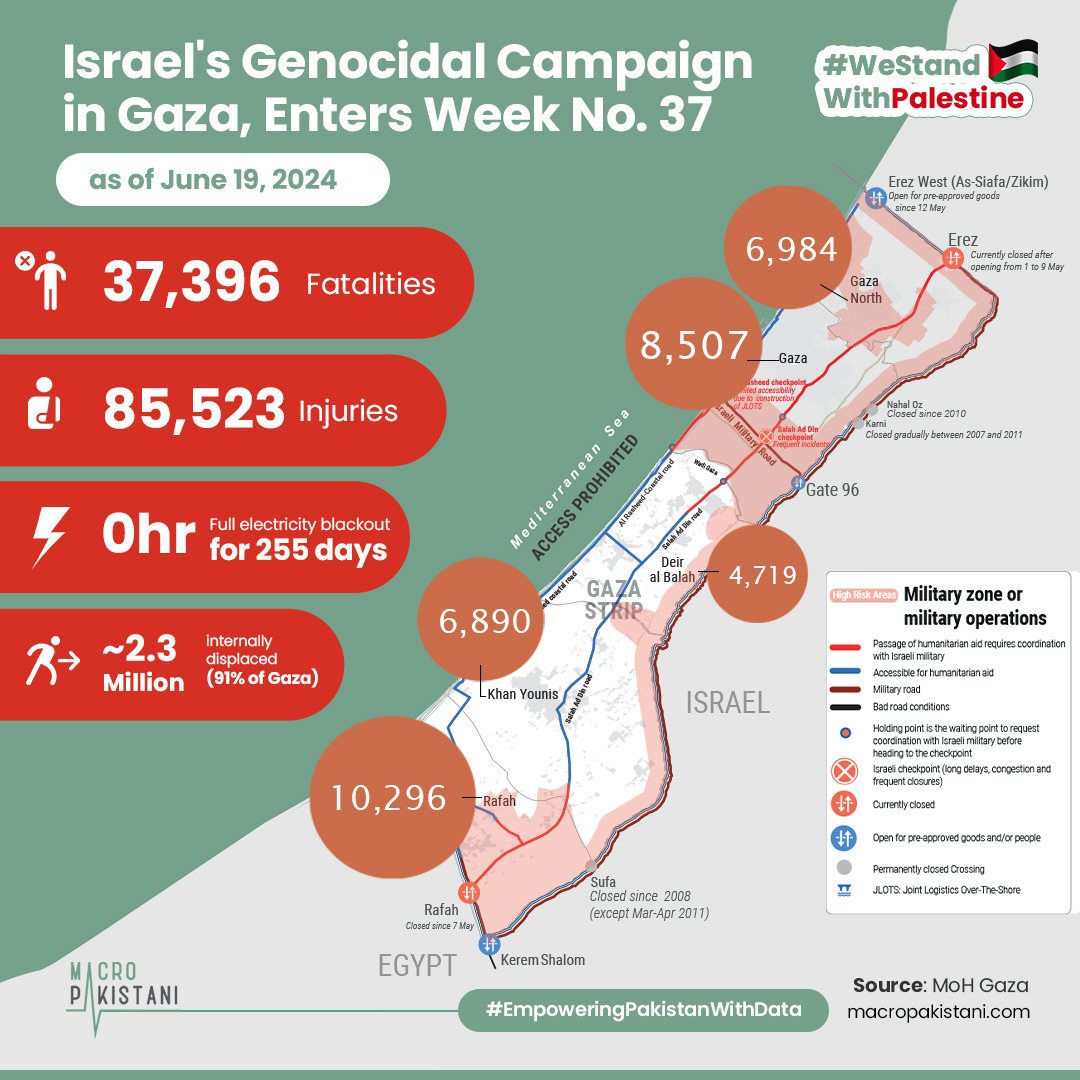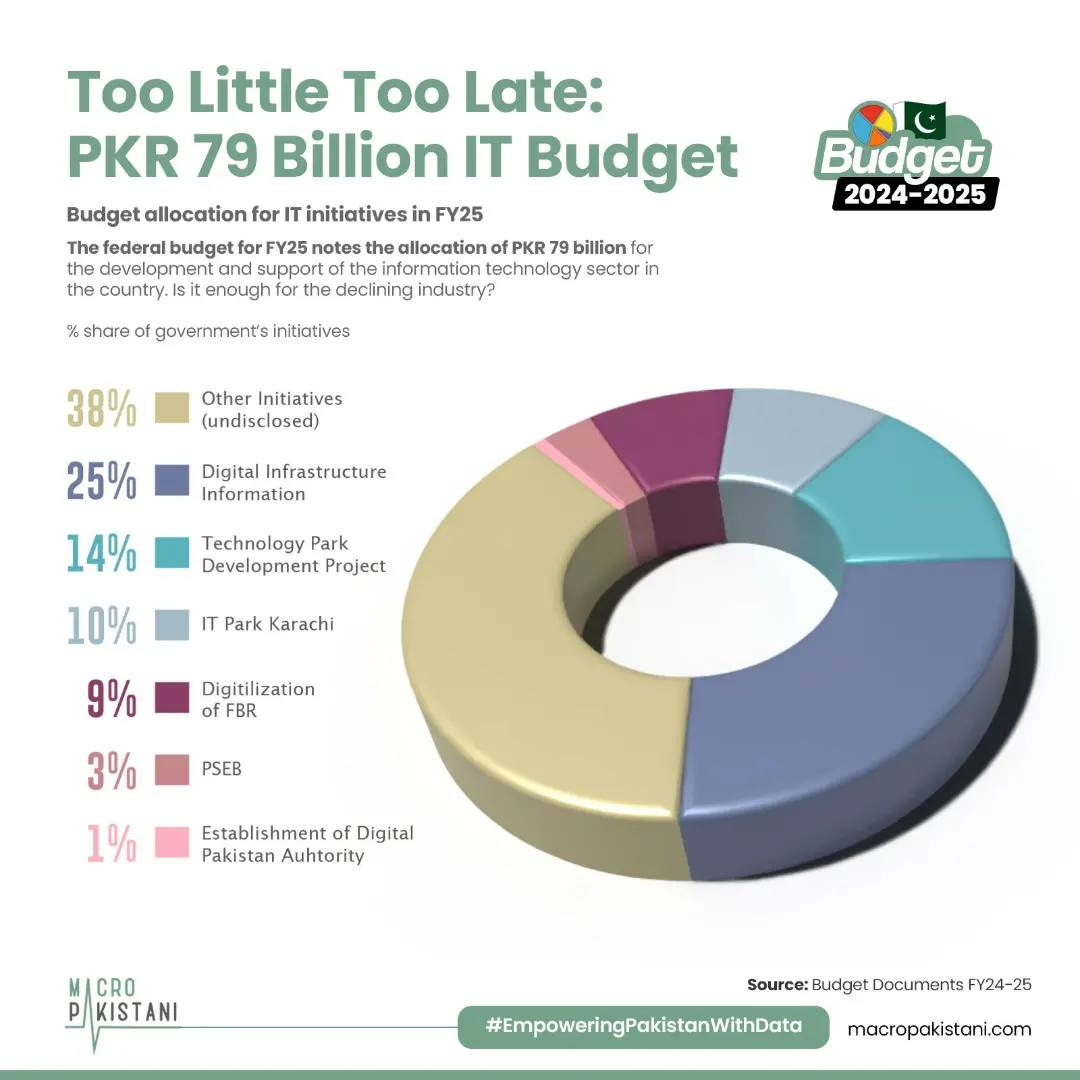The Green Road to Universal Energy Access
Pakistan's per capita energy consumption has dropped to levels comparable with African countries, yet its energy costs are on par with those in developed nations.

On the surface, Pakistan’s energy sector has a plethora of problems ranging from poor infrastructure to pricing issues and the infamous circular debt. However, energy poverty is one important phenomenon that remains underexplored. It significantly impedes Pakistan's socioeconomic development, particularly in rural areas. Despite a nationwide electricity access rate of 96%, only 77% of the population has access to grid electricity, leaving approximately 32,000 villages and 8.8 million households without a connection to the national grid according to some estimates. The disparity is even more pronounced when comparing among provinces as Sindh notably saw a 6% increase in access between 2015 and 2020 while Khyber Pakhtunkhwa experienced a decline from 96.2% to 92% in the same period. It is essential to note that resolving energy poverty also provides Pakistan with the opportunity to evolve its renewable energy portfolio simultaneously.
Can Pakistan kill two birds with one stone by ensuring universal access to energy while pursuing a green energy transformation?
In the 2010s, solar panels were in fact used to provide energy access to households through the Pakistan Poverty Alleviation Fund. Through households across the country, Pakistan's renewable energy sector has seen significant growth with net metering, reaching 56,000 consumers by June 2023 and generating 482 gigawatt-hours, a 220% year-on-year increase. Despite this, net metering's contribution remains less than 0.4% of total energy generation. Shifting to gross metering, where consumers sell all solar-generated electricity at a lower rate and buy it back at a higher retail rate, would undermine solar investments and drive consumers off-grid. The fact that solar energy is the cheapest to produce in Pakistan also adds to the confusion as to why Pakistan is discouraging solar panels. Furthermore, the budget FY25 avoids substantial incentives for renewable energy.
Renewable energy must be embraced as the path forward to ensure universal energy access, achieve sustainable development goals, and reduce Pakistan's energy burden through cost-saving measures. For this, the country needs an economics-backed policy instead of exercises in accounting.
GRAPHIC
In case anyone wants to contribute (to the Palestine solidarity campaign on Macro Pakistani) and send data-backed content, please feel free to send an email to fakiha.rizvi@brandnib.com
Team Brand Nib (@brandnib)
Today, Pakistan’s Minister of State for IT & Telecommunication, Shaza Fatima Khawaja has viewed Macro Pakistani’s Instagram stories.
The story was about Pakistan 🇵🇰 ranking 145th out of 146 countries, with a score of 0.57, dropping from 142nd in 2023 on the Global Gender Gap Index 2024 😔
But we hope she saw this too while visiting our account:
Data Visualization & Marketing Partner: Brand Nib
Visit: https://macropakistani.com/advertise/
Grateful for the ever-growing list of collaborators!
About Us: Macro Pakistani is a data-driven research platform that aims to provide a basic understanding of Pakistan’s economy. If you have an interest in contemporary news but are currently overburdened with sensationalism and specialized vocabulary, we are the platform for you.
How are we doing? Please send us any questions, comments or suggestions by replying to this email.






